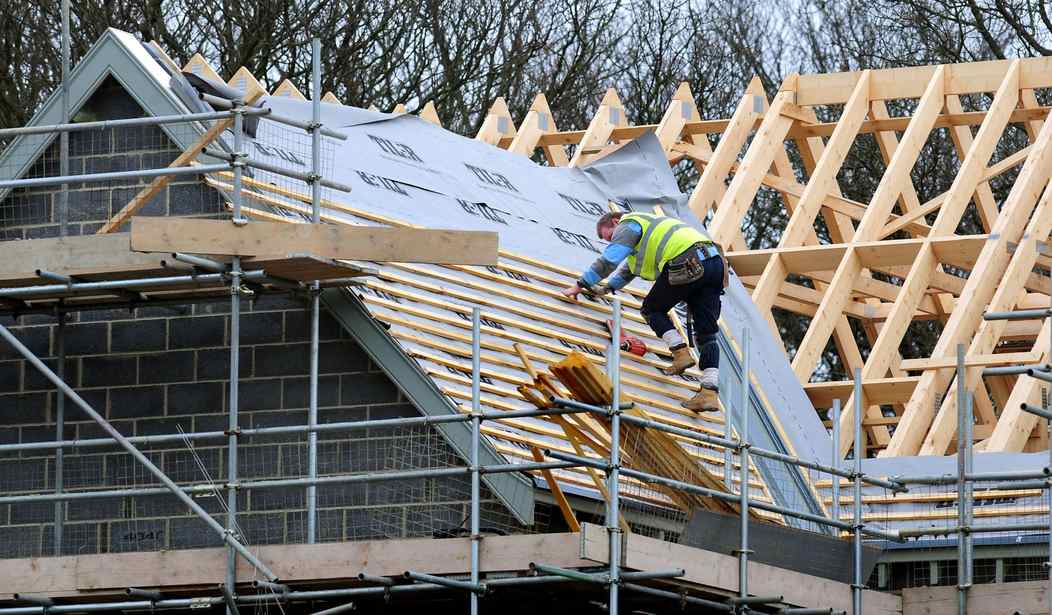Fall is political party conference season in Britain. This year, it’s also the scene of a race to the bottom for dismal economic policies.
All the major parties have offered up some economic ideas that are worse than useless, but winning by a mile is the ultra-left Labour Party, led by Jeremy Corbyn.
The matter in question is the country’s chronic housing affordability crisis. Ground zero for the mess is the capital London, where home prices more than doubled from January 2004 through July 2017, according to the latest data from the UK’s Office of National Statistics. Salaries have not risen so much.
While the main problem is the high prices – rents are elevated as well — the matter could get solved through more construction, which would increase supply. But that takes time. Instead, Britain’s politicians have decided to pander to populism.
Political leaders are endorsing the popular demands for “more protectionism or social safety nets against globalization, labor market uncertainty, and unchecked capitalism,” says Ivo Pezzuto, professor of global economics at ISM Business School in Paris.
But just because an idea is popular doesn’t stop it from being stupid. Here’s the skinny on these less than adequate policies along with some suitable awards.
Bronze medal for the PM
Let’s start in reverse order with Prime Minister Theresa May’s plan.
“Today, I can announce that we will invest an additional £2bn in affordable housing,” she said at her party conference earlier this month. That’s around $2.7 billion.
Given the extent of the problem, her plan would be as futile as trying to bail out a sinking battleship with a teaspoon.
Let’s do the math. The average price of a home in London was 489,000 Britsh pounds ($650,000) in July, ONS data says. If all the new government-funded apartments and houses get built there, then Theresa May’s extra money adds around 4,000 dwellings.
It isn’t just a drop in the bucket; it is a drop in the ocean.
May did add that the government will make sure that land is available for commercial builders to construct new dwellings. But it doesn’t tackle the problem that banks are still reticent to lend and any construction in the UK is bedeviled by regulations that hamper the efforts to increase supply.
‘Blame the foreigners’ gets the silver medal
Vince Cable, leader of the center-left Lib-Dems, suggested something worse. His idea is to hit foreign investors who are buying up Britain’s real estate.
“I want to see fierce tax penalties on the acquisition of property for investment purposes, by overseas investors,” he said at his party conference last month.
It’s the old ploy of blaming the foreigners or the bankers. In this case, you get two for the price of one: foreign investors.
His idea won’t solve the housing crisis, because one way or another investors who want to do so will circumvent the penalties. Either they will purchase real estate in New York or Paris, or they will devise schemes to avoid detection.
Also, his idea creates a new problem. Just like the U.S., the UK runs a large trade deficit. This is always the case when a country imports more than it exports. To make up the difference the country needs capital.
The capital can come from selling government bonds – in the U.S. case, typically purchased by China. Or in this instance, it comes in the form of cash to buy British property.
Without the real estate cash, there will be less capital headed to the UK, which wouldn’t be good for its economy.
Corbyn gets the gold medal
But it is Corbyn’s idea that takes the cake. He wants to introduce rent control, which will likely make the situation even worse.
“If you love access to housing, then by definition you must loathe rent control because it drives away the people who provide the housing, the investors,” says John Tamny, director of the Center for Economic Freedom at FreedomWorks. “The man of people must hate the people.”
Most housing gets built by business people and investors who put up money to buy land and materials to construct new dwellings. They do this in the hope of making a profit. If the rents get capped at below-market rates by the government, then there is little incentive for investors to invest their capital in home-building projects.
The result is simple. There will be fewer housing units built, which is the exact opposite of what the country needs. One economist sums it up well.
“Given the severe shortage of housing a move to impose rent control would surely exacerbate the problem,” says Joe Brusuelas, chief economist at professional services firm RSM.









Join the conversation as a VIP Member